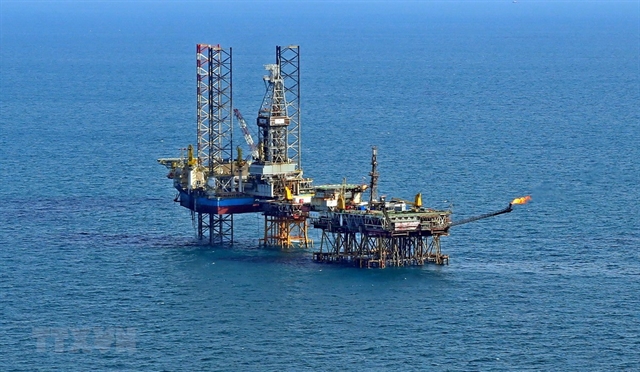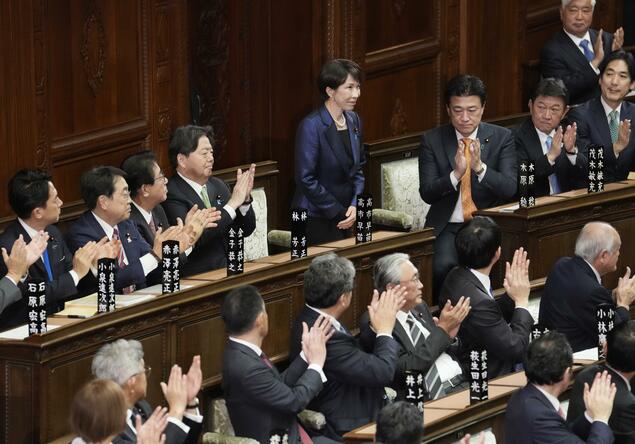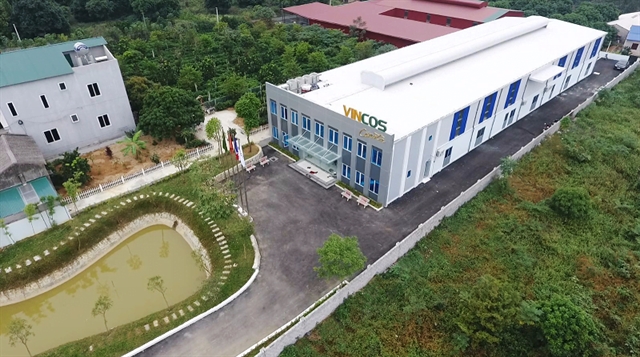 Economy
Economy


|
| An oil rig in the Bạch Hổ field, under the management of Vietsopetro Group. — VNA/VNS Photo |
HÀ NỘI — Oil and gas output in Việt Nam is falling as most current fields are reaching the end of their lifespan. However, investors in the industry are hesitant to invest due to the risk of no return should the costly explorations fail to yield positive results.
"Foreign investors need to see a comprehensive, transparent and conducive legal framework to support investments in the oil and gas industry. Therefore, our legal reforms to regulate the industry must be able to attract and facilitate investment activities," said industry experts at an online conference to discuss the industry current regulations.
Oil prices tend to fluctuate and have proven to be unpredictable.
"It's not unusual to find oil and gas in no more than two out of ten drillings at seas. Costly investments, high risk and limitations in sharing resources with the host country, on top of a lot of red-tape to deal with once oil and gas are found, are factors that have been turning foreign investors away from Việt Nam," said Trần Thanh Tùng, deputy head of the Ministry of Industry and Trade's coal, oil and gas department.
Investors often require some types of assurance that exploration costs could be recovered, at least in part. Current regulations require investors to bear the cost of environmental tax at 10 per cent, business income tax at 50 per cent for a typical oil block, and 7 per cent and 32 per cent respectively for a preferential oil block, which is not attractive to foreign investors.
Nguyễn Quốc Thập, deputy chairman of the Việt Nam Oil and Gas Association said the country's output will likely decline in 2022 without new exploration projects. Meanwhile, a lack of a legal framework to regulate demand has also kept many potential investors away.
In an amendment to Việt Nam's Oil and Gas Law, the ministry has proposed several changes including lowering business income tax to 30 per cent and export tax to 5 per cent, as well as raising financial support for regular blocks to 50 per cent and 70-80 per cent for preferential blocks.
Due to the industry's inherent high-risk factor, investors are within their rights to demand a comprehensive legal system that is clearly defined and easy to follow, according to Nguyễn Đức Kiên, head of the Prime Minister's Economic Advisory Council.
Experts have long voiced their support for legal reforms that will bring the country's regulations closer to international laws and standards. For example, PetroVietnam, the country's largest oil and gas business operation have, on numerous occasions, complained about overlaps and complications among the 2014 Investment Law, the 2020 Investment Law and the current Oil and Gas Law.
"The amended law must allow PetroVietnam to smoothly carry out oil and gas projects, eliminate legal complications and bring all regulations under just one law," said Thập.
Speaking on the topic, former Deputy Chairman of the National Assembly’s Economic Committee Nguyễn Văn Phúc said the industry played a key role in energy security, macro-economic balance, national defence and foreign affairs, stressing the industry was an important part of Việt Nam’s marine economic development strategy.
Despite being amended in 2000 and 2008, the Law on Petroleum only regulates upstream operation (exploration and production) and does not mention midstream (transportation, storage and wholesale marketing) or downstream operation (refining and distribution).
Deputy Director of the Central Institute for Economic Management Trần Kim Chung also stressed that the oil and gas industry was one of the key industries in Việt Nam’s marine economic development strategy.
The strategy could be implemented if there was an appropriate legal framework and a special financial mechanism to promote the development of key industries, including oil and gas, Chung said.
A majority of the active oil and gas in Việt Nam blocks have been exploited since 1986. The Việt Nam petroleum sector is calling for more favourable policies from the government, to offset an output drop in the sector.
After decades of extraction, many high-performance fields are approaching the end of their lifespan. Output shrank by 15-25 per cent per year. With current fields running out, discovering new fields is the only way to maintain output. — VNS




